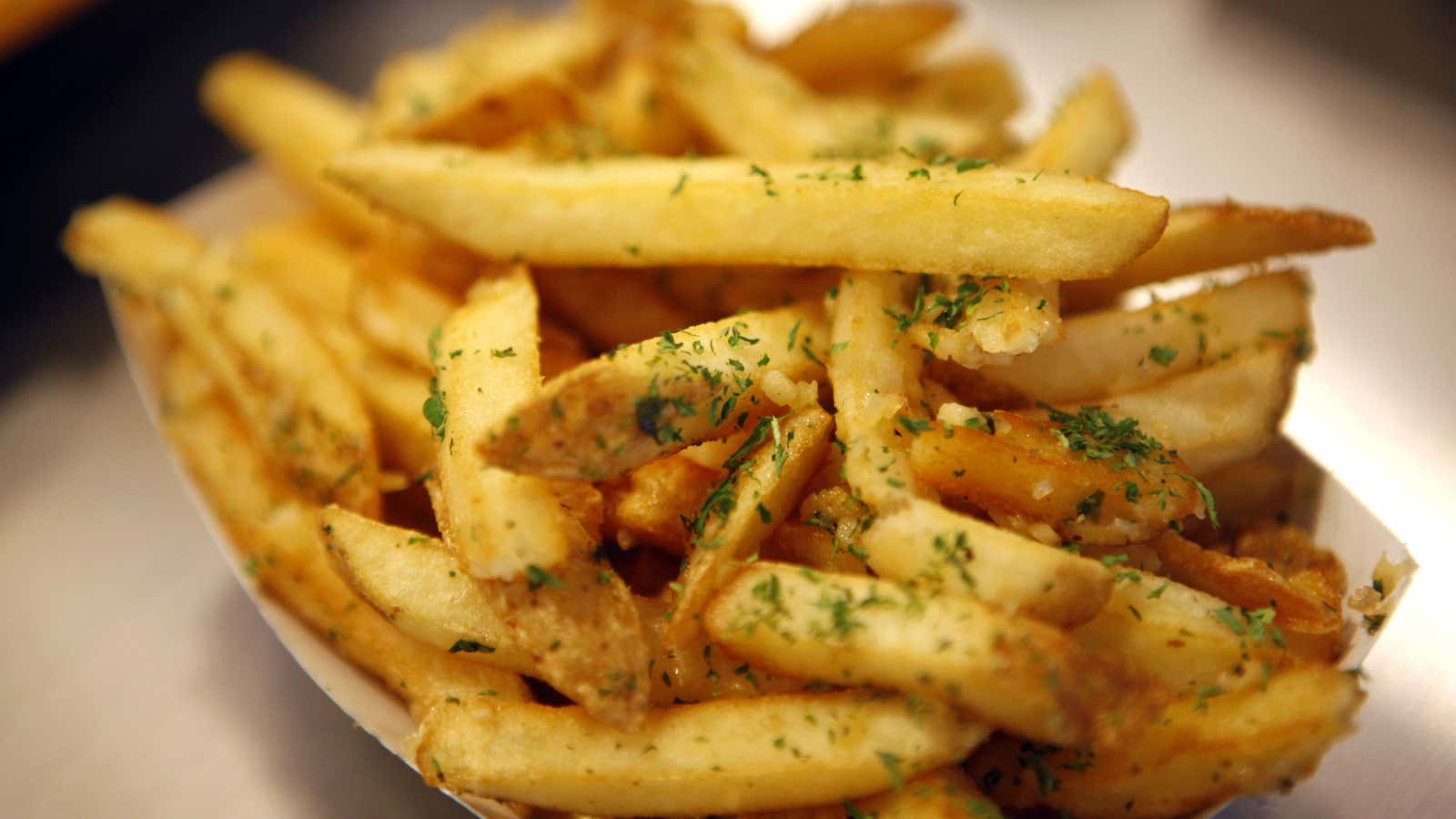It’s a nearly impossible challenge: Eat just one potato chip. Same goes for tater-tots, cheese, ice cream—high-fat foods can be addictive. Before you know it, you’ve finished your portion and moved on to the rest of the container.
It turns out, there may be a biological reason for that. Research from the University of Georgia at Athens suggests that high-fat foods actually change the bacteria in your gut, and make it so that we’re unable to detect the sensation that we’re full. Krzysztof Czaja, a neuroscientist at UGA College of veterinary medicine, presented the findings at the Annual Meeting of the Society for the Study of Ingestive Behavior.
Czaja and his team used about 50 rats, and fed some of them balanced diets with proteins, fats, and carbohydrates. Others had diets with a higher fat content, which had previously been proven to cause weight gain. The rats were able to eat as much as they pleased.
Scientists monitored the rats for two months. The rats on the high-fat diet ate more, and subsequently gained enough weight to be 25% larger than their peers after the same amount of time. In addition to their size, the gut microbiome in the rats on the high-fat diet had shifted. Some bacteria populations grew while others were eliminated. According to Czaja, this bacterial imbalance damaged the vagus nerve, which is responsible for signaling to the brain for when we’re full.
“What our study shows is that the signals to stop eating are compromised by a damaged vagus [nerve],” Czaja told Quartz. He compared the vagus nerve to optic fibers connecting a telephone call: As long as wires are functioning, both parties can hear clearly and understand each other. “When the vagus nerve is broken, the brain cannot hear all the complete information about [the gut feeling full].” And as a result, the rats on the high-fat diet kept eating—even beyond the point where they were satiated.
According to Czaja, the gut-brain communication in humans is very similar to rodents; he thinks that the results of this research could lead to more insight about what causes obesity. An unbalanced diet could lead to an unbalanced gut-microbiome, which could lead to a damaged vagus nerve. The next steps in his research are to examine the effects of a high-sugar diet on the gut microbiome.
Czaja believes that his research could ultimately explain why so many diets fail. When we gain weight by eating a lot of fats or sugars, we may decide to cut them out of our diet. But the damage may already be done: “By this first exposure to an unbalanced diet, we already have damaged our gut-brain communication. So even when we lose weight, we still regain it after a while because this telephone line is still broken,” he told Quartz.




